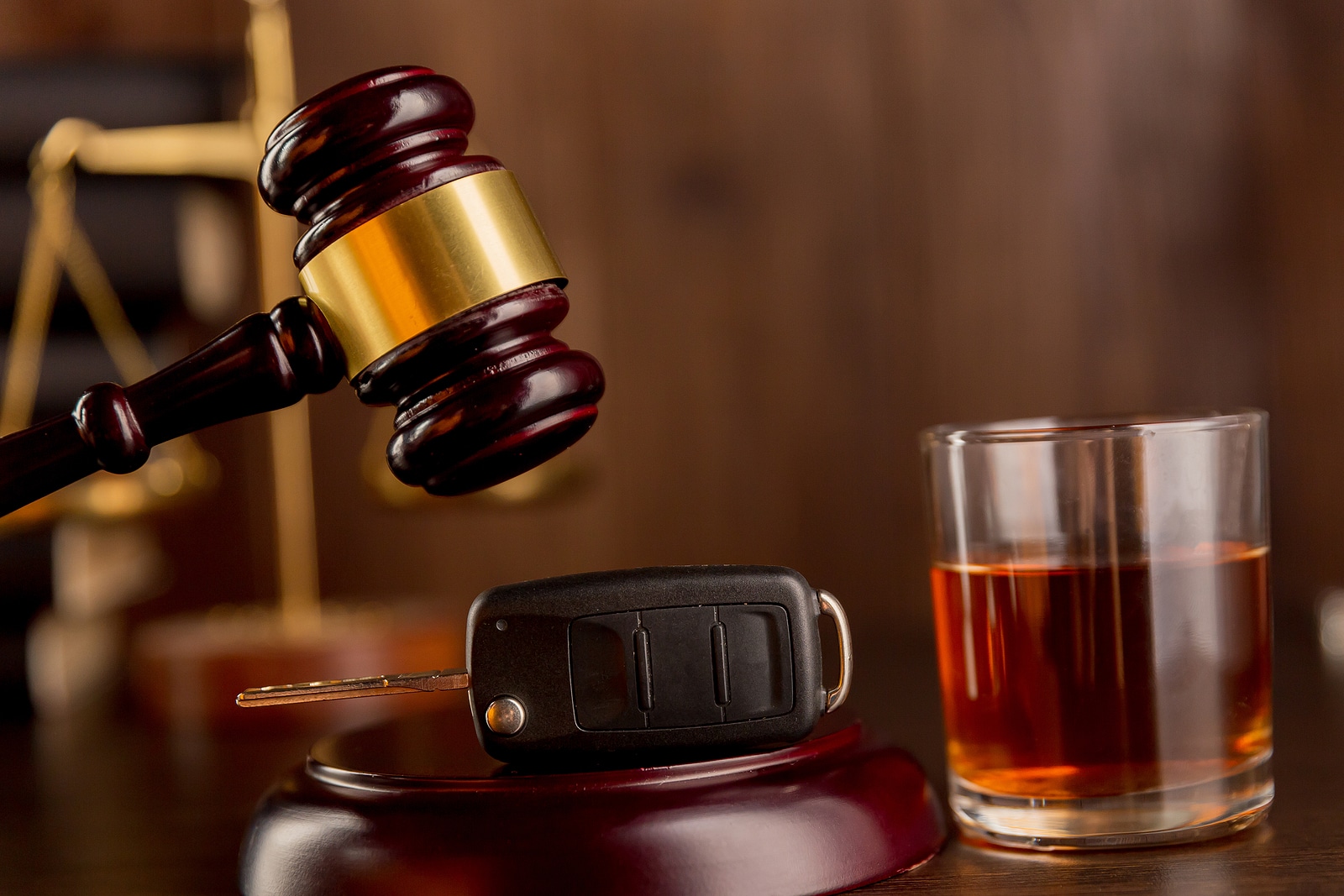Navigating the Juvenile Justice System: Protecting the Rights of Young Offenders
Juvenile justice, a specialized branch of the criminal justice system, deals with the legal processing of individuals defined as juveniles, typically those under the age of 18.
Juveniles possess distinct rights designed to safeguard their well-being and guarantee a fair legal process. Understanding these rights is crucial as it not only protects young individuals’ rights but also shapes our society’s future. By recognizing the unique developmental stage of young offenders, the juvenile justice system aims to balance accountability for actions with rehabilitation and guidance, emphasizing restorative justice rather than punitive measures.
Differences from Adult Rights
While juveniles share fundamental rights with adults, there are key differences that acknowledge their unique status. Juvenile justice systems, in many jurisdictions, prioritize rehabilitation over punishment. This distinction is vital because it recognizes that young individuals are still developing, both intellectually and emotionally. Consequently, their actions might be impulsive and immature, and they may be more responsive to guidance and support than punitive measures.
Additionally, the confidentiality of juvenile records is often protected to prevent their youthful mistakes from hindering their future opportunities. These differences highlight society’s commitment to offering second chances and ensuring that juvenile offenders have the opportunity to reintegrate into society positively.
The Right to Legal Representation
One of the fundamental rights afforded to juveniles is the right to legal representation. Just as adults have the right to an attorney, juveniles are also entitled to legal counsel. This right ensures that young individuals have access to legal advice and representation, allowing them to navigate the complexities of the legal system. Legal representation is essential for juveniles as it balances the power dynamics between the prosecution and the defense, ensuring a fair trial.
The appointment of a qualified attorney for juveniles is particularly vital because they might not fully comprehend the legal proceedings and implications of their actions. Legal representation acts as a shield, protecting juveniles from potential exploitation and ensuring that their voices are heard in courtrooms.
The Right to Remain Silent
The right to remain silent is another cornerstone of the juvenile justice system. Juveniles, like adults, have the right to remain silent and cannot be compelled to incriminate themselves. This right protects young individuals from self-incrimination, allowing them to avoid statements that might be used against them in court.
For juveniles, the right to remain silent is crucial, given their vulnerability and potential susceptibility to coercion or pressure from law enforcement authorities. It provides them with the necessary protection, preserving their dignity and ensuring that their statements are voluntary and informed. Safeguarding this right ensures that the information gathered during interrogations is reliable and obtained ethically.
The Right to a Fair Trial
The right to a fair trial is the bedrock of the justice system, ensuring that every individual, regardless of age, is treated equitably before the law. Juveniles are afforded this right, guaranteeing them a trial that is impartial and just. A fair trial includes the right to present evidence, confront witnesses, and challenge the prosecution’s case.
In the context of juveniles, a fair trial also means considering their age, maturity, and capacity for change. Special procedures and accommodations are in place to guarantee that juvenile offenders are treated differently from adults. The focus is often on rehabilitation and reformation rather than punishment, reflecting society’s recognition of the potential for personal growth and change in young individuals.
Confidentiality
Confidentiality, as it pertains to juvenile records, stands as a pillar of the juvenile justice system, emphasizing the belief in the capacity for change and the importance of not letting youthful mistakes define an individual’s future. Unlike adult records, which are often public, juvenile records are generally kept confidential, creating a clear distinction that recognizes the unique status of young offenders.
Encouraging Reintegration into Society
By maintaining the confidentiality of juvenile records, society encourages the successful reintegration of young offenders into the community. Publicizing youthful mistakes can severely limit educational and employment opportunities, perpetuating a cycle of crime and hindering efforts toward rehabilitation. Confidentiality allows these individuals to pursue education, secure employment, and contribute positively to society without the burden of their past actions constantly impeding their progress.
Protecting Privacy and Dignity
Confidentiality protects the privacy and dignity of young individuals who have committed offenses. Adolescence is a time of self-discovery and personal growth, and young offenders are often not fully aware of the consequences of their actions. Confidentiality ensures that their mistakes do not define their identity, protecting their dignity and allowing them the freedom to mature without the constant judgment associated with a public criminal record.
Recognizing the Potential for Change
Fundamentally, confidentiality in juvenile records underscores society’s recognition of the potential for change. Adolescence is a time of transformation, and young individuals often outgrow their impulsive behaviors with maturity and guidance. By keeping their mistakes confidential, society acknowledges the capacity of these individuals to learn, evolve, and become responsible, law-abiding citizens.
Parental Involvement
The involvement of parents or guardians in juvenile proceedings stands as a cornerstone of the juvenile justice system, recognizing the vital role that family support and guidance play in the rehabilitation efforts of young individuals. Unlike adult cases, where the individual faces legal consequences alone, juvenile proceedings actively involve parents or guardians, fostering an environment that emphasizes support, understanding, and the opportunity for positive change.
Emotional Support and Stability
Parents or guardians provide emotional support and stability, crucial elements in a young person’s life, especially during challenging times such as legal proceedings. The emotional reassurance offered by family members can significantly impact a juvenile’s mental well-being, helping them cope with the stress of the situation. This support creates a foundation upon which the juvenile can focus on rehabilitation, knowing that their family stands by them.
Accountability and Responsibility
Incorporating parents or guardians into juvenile proceedings holds the young individual accountable for their actions within the family unit. This accountability reinforces the values taught at home and underscores the importance of personal responsibility. It also allows parents to actively participate in setting boundaries and expectations, ensuring that the juvenile understands the consequences of their behavior not only in the legal context but also within the family structure.
Strengthening Family Bonds
Involving parents or guardians strengthens family bonds, promoting a sense of unity and belonging. Through active participation in the juvenile’s rehabilitation, families often undergo a transformative process together. This shared experience fosters understanding, forgiveness, and empathy, reinforcing the support system available to the juvenile.
Strong family bonds provide a stable foundation upon which the juvenile can rebuild their life and make positive choices moving forward.
Long-term Positive Outcomes
Research indicates that juveniles with supportive family involvement are more likely to complete their rehabilitation programs successfully and avoid future criminal behavior.
By investing in family support and guidance, juvenile justice systems promote long-term positive outcomes, reducing recidivism rates and creating a safer society.
Additionally, involving parents or guardians establishes a sense of collective responsibility, encouraging communities to actively contribute to the well-being of young individuals.
Sentencing Considerations
The approach to juvenile sentencing is markedly different from that of adult offenders. Emphasizing rehabilitation over punishment, juvenile sentencing reflects a profound understanding of the unique developmental needs and potential for change in young individuals. This approach results in a series of distinct considerations, including shorter sentences, alternative programs, and educational or counseling interventions, all geared toward nurturing rehabilitation and personal growth.
Rehabilitation as the Core Objective
The primary focus of juvenile sentencing is rehabilitation. Recognizing that young individuals are still in the process of emotional, cognitive, and social development, the justice system prioritizes interventions to address the underlying issues that led to the delinquent behavior. By offering opportunities for reform and personal growth, juvenile sentencing aims to reintegrate young offenders into society as responsible and law-abiding citizens.
Shorter Sentences and Focus on Education
Juvenile sentencing often involves shorter periods of incarceration compared to adult offenders. This approach is rooted in the understanding that lengthy sentences may do more harm than good, hindering the juvenile’s ability to reintegrate successfully into society. Instead of long-term incarceration, the focus is on providing educational opportunities within juvenile facilities, ensuring that young offenders can continue their studies and acquire essential skills. Education becomes a cornerstone of rehabilitation, empowering juveniles with knowledge and tools for a better future.
Alternative Programs and Community-Based Interventions
Juvenile justice systems frequently employ alternative programs to incarceration. These can include community service, counseling, restorative justice programs, or probation. Community-based interventions are designed to address the juvenile’s specific needs within their social context. By remaining within their community, young offenders can maintain important family and peer relationships, providing a support network crucial for rehabilitation. Community programs often offer counseling and therapy, addressing behavioral issues and teaching necessary life skills.
Mental Health and Trauma-Informed Interventions
Many juveniles involved in the justice system have experienced trauma or struggle with mental health issues. Juvenile sentencing takes these factors into account, often providing specialized interventions and counseling tailored to address trauma and mental health challenges. Trauma-informed care aims to create a safe environment, fostering healing and recovery. By addressing these underlying issues, the justice system works toward breaking the cycle of delinquency associated with untreated trauma or mental health conditions.
Family and Social Support
Sentencing considerations in juvenile cases actively involve the juvenile’s family and social support network. Families are often encouraged to participate in counseling and therapy sessions alongside the juvenile. This inclusive approach recognizes the importance of familial bonds and support systems in the rehabilitation process. By empowering families with the knowledge and skills to support their juveniles, the justice system extends its reach beyond the individual, fostering a nurturing environment for positive change.
Focus on Restitution and Responsibility
Restitution, where the juvenile takes responsibility for their actions by compensating victims, is another key aspect of juvenile sentencing. This approach emphasizes accountability while allowing the juvenile to make amends. By actively participating in restitution, young offenders learn the consequences of their actions and work toward rebuilding trust within their communities.
The Importance of Safeguarding Juvenile Rights
Safeguarding the legal rights of juveniles is not just a matter of empathy; it is essential for the well-being of society as a whole. By providing fair treatment and opportunities for rehabilitation, society invests in the potential of young individuals to become responsible and productive citizens. Respecting juvenile rights fosters trust in the justice system, reinforcing the belief that everyone is equal before the law.
Juvenile Justice Requires Special Considerations
Juveniles, despite their involvement in illegal activities, retain fundamental legal rights that safeguard their well-being and ensure fair treatment within the justice system.
These rights stem from the recognition that juveniles, due to their age and cognitive development, require a different approach than adult offenders. Juvenile sentencing considerations represent a progressive and enlightened approach to justice. By prioritizing rehabilitation over punishment and tailoring interventions to address the unique needs of young individuals, the juvenile justice system aims not only to correct delinquent behavior but also to nurture responsible, empathetic, and productive members of society. Through education, counseling, and community-based support, juvenile offenders are allowed to transform their lives, breaking free from the cycle of crime and contributing positively to their communities and society at large.
Carl Chapman, P.C. Provides Experienced Guidance in Juvenile Cases
The legal rights of juveniles are fundamental to a just and equitable society. These rights protect young offenders from unfair treatment, promote rehabilitation, and ultimately contribute to safer communities. Are you facing legal issues involving a young family member? Carl Chapman, P.C. can help. Call 470-206-2169 today for a consultation.

 470-206-2169
470-206-2169





